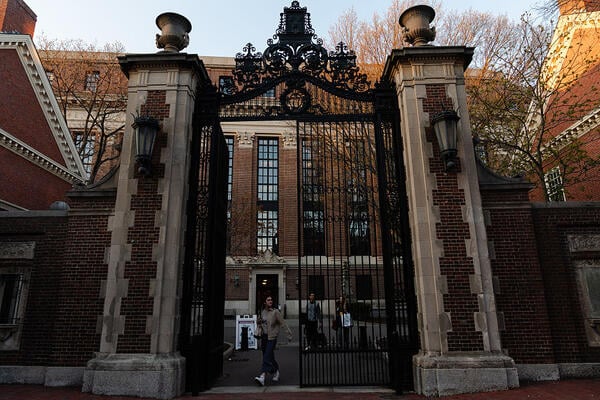UK Government Faces Economic Pressure Amid Wealth Tax Debate

The UK government currently finds itself in a dire financial situation, facing increasing pressures from both domestic and international fronts. A troubling combination of tariffs imposed by the United States and the additional financial burdens placed on British businesses last year has led to a significant downgrade in the countrys economic growth forecast. This revised outlook is forcing the government to reconsider the financial projections it made just three weeks ago during the Spring Statement, as it strives to bring balance back to the books.
In practical terms, this could mean either implementing more spending cuts or raising taxes. However, the government has firmly ruled out increasing income tax, Value Added Tax (VAT), and employee national insurance contributionskey revenue generators for Her Majestys Revenue and Customs (HMRC). This decision leaves policymakers feeling pressured to consider alternative revenue sources, sparking discussions about a potential wealth tax.
Such a tax could resonate strongly with factions on the left of the Labour Party, who are increasingly dissatisfied with the current trajectory of government policy. Advocates for a wealth tax point to the stark wealth disparities that exist within the United Kingdom, highlighting that the affluent possess vast resources.
According to the latest survey by the Office for National Statistics (ONS), the wealthiest 1% of the UK population holds as much wealth as the bottom 50% combined. With total household wealth exceeding 13 trillion, this means the top 1% has accumulated more than 1.3 trilliona potentially lucrative target for tax reform.
This wealth inequality is even more pronounced than income inequality. The Gini coefficient, a statistical measure of distribution, provides insight into these disparities. A Gini score of 1 indicates that one individual possesses all the wealth, while a score close to 0 reflects a nearly equal distribution. The ONS found that the UKs Gini coefficient for income stands at 0.36, while for wealth, it is a staggering 0.59, underscoring the concentration of wealth among the few.
While the UK is not alone in grappling with wealth inequalitymany developed nations face similar challengesthe notion of implementing a wealth tax raises significant concerns. A key argument against such a tax is that many countries have moved away from it. Stuart Adam, a senior economist at the Institute for Fiscal Studies, notes that out of twelve OECD countries that had a wealth tax in 1990, nine have since abandoned the approach. Dan Neidle from the Tax Policy Associates think tank emphasizes that history shows an extreme record of failure for similar tax initiatives.
There are several crucial challenges associated with wealth taxes that must be addressed. First, theres the difficulty of determining which assets to include; broader inclusion might raise more revenue but inevitably leads to increased public dissent. Second, accurately valuing wealth assets presents a significant hurdle, particularly as a substantial portion of wealth is tied up in private companies that lack market valuation. Third, the government must navigate the delicate balance of ensuring the tax does not alter economic behavior, which could encourage the wealthy to relocate their assets into tax-exempt categoriesa trend observed with inheritance tax and agricultural assets. Lastly, there is the persistent risk of wealthy individuals circumventing the tax by moving their money overseas.
In historical contexts, substantial wealth taxes were levied in countries such as Japan, France, and West Germany following the Second World War, primarily aimed at national rebuilding efforts when the movement of capital was heavily restricted under the Bretton Woods system. In contrast, todays global economy allows for the swift movement of liquid assets across borders, underscoring the challenge of catching the wealthy off guard with any new tax imposition.
A report from the Wealth Tax Commission in 2020 proposed a one-off wealth tax of 5% payable over five years, suggesting it could raise 260 billion if applied to assets exceeding 500,000 or about 80 billion if levied on assets above 2 million. This type of tax would be harder to evade if the assessment date coincided with the tax announcement.
Conversely, implementing an annual tax would require more extensive administration due to the necessity for constant asset valuations, increasing the opportunities for tax avoidance as individuals might alter their asset portfolios to minimize liability. For instance, people could distribute their assets among family members or seek to relocate abroad, making enforcement significantly more complex.
Furthermore, the commission indicated that all forms of wealth should be included in the tax calculation to prevent distortions that could encourage investment in certain asset types over others. While this could maximize revenue collection, it carries significant political risks.
Setting a low threshold of 500,000 would ensnare around 8 million Britons, many of whom do not view themselves as affluent. Homeowners in the southeast, where properties often exceed 1 million, would be particularly affected. Even a threshold of 2 million would still capture approximately 626,000 taxpayers and might include upset farmers reacting to recent inheritance tax changes.
One potential solution could involve excluding a primary residence from the tax assessment, though this would lead to a revenue shortfall of about 30% at the 500,000 threshold and 15% at 2 million. Another asset category with substantial implications for individual wealth is pension rights. Those under the age of 55 face hefty tax penalties if they attempt to access their pension pots prematurely. The commission proposed allowing the funds to be withdrawn as a lump sum upon retirement, which would delay revenue collection for the government and hinges on the continued tax-free status of lump sums going forward. If pensions are excluded from the wealth tax, potential revenue would decrease further. A 2022 estimate from the IFS indicated that housing and pensions account for approximately 80% of household wealth.
Consequently, many individuals may find themselves asset-rich but cash-poor. For example, a 50-year-old with a South-East home valued at 1.5 million and a pension accumulated over 30 years might seem wealthy on paper. However, they could struggle to fulfill an unexpected tax bill of 75,000 (5% of their assets) even if given several years to pay.
To mitigate some challenges and lessen political backlash, increasing the minimum tax threshold to 10 million would only impact around 22,000 taxpayers while generating approximately 43 billion over five years, according to the Wealth Commission. Nevertheless, many of these affluent individuals might possess small businesses that would need to be accurately valueda daunting task given the estimated 5.5 million private businesses within the UK. While private businesses are evaluated annually for inheritance tax purposes, they do so on a much smaller scale, affecting only 4.4% of estates.
One approach could involve allowing business owners to self-assess their companys value, with a proportion of them subject to audits to deter fraudulent reporting. However, tax avoidance remains a major concern, particularly when targeting the wealthiest, who are likely to have access to the best legal and tax advice. Neidle points out that larger estates often pay inheritance tax at half the rate of smaller estates. Additionally, many wealthy individuals possess hard-to-value assets like art and jewelry, complicating enforcement further and potentially leading to prolonged legal disputes as the ultra-rich challenge their tax assessments.
Despite these hurdles, some countries successfully implement wealth taxes. Switzerland has imposed a wealth tax since the 18th century, levied at the regional level, generating around 3.8% of the states annual income. However, overall tax rates in Switzerland hover around 27% of GDP, significantly lower than the UKs approximate 37%. Wealthy individuals can benefit from low marginal tax rates depending on their canton of residence, while the UKs top marginal rate stands at 45%.
Spains wealth tax, which can reach 3.5% for higher net worth individuals, exempts assets valued below 700,000, the taxpayers primary residence, and certain family businesses. In 2023, this tax raised 632 million, accounting for nearly 0.25% of Spains total tax revenue of 272 billion.
In contrast, the UKs annual tax revenue is just under 800 billion, meaning that a 0.25% increase would equate to roughly 2 billioninsufficient to significantly impact the annual budget deficit, which is projected to be around 137 billion for the 2024-25 financial year.
Considering these complexities, it becomes evident why the government remains hesitant to take decisive action. The potential revenue generated may not justify the political upheaval that would likely ensue, particularly with rampant media narratives about socialist confiscation. Additionally, if a wealth tax were introduced as a sudden, surprise measure, it could provoke significant backlash.
Moreover, similar to inheritance tax, many individuals who would not directly pay the wealth tax might still perceive it as a threat to their financial aspirations. Wealthy foreigners, already deterred by recent changes to their tax status, would likely be even less inclined to reside in the UK.
Ultimately, as the government aims to foster economic growth and attract business investment, imposing another tax on successful individuals seems counterproductive.
It is essential to note that both capital gains tax and inheritance tax can already be viewed as forms of wealth taxation. The government has already tightened certain inheritance tax reliefs in previous budgets, notably limiting exemptions for assets exceeding 1 million.
Neidle advocates for progress by closing loopholes while simultaneously reducing tax rates, as many taxpayers actively seek to avoid the current punitive 40% inheritance tax rate. He suggests that capital gains tax could also benefit from reform, potentially equalizing it with income tax but only levying it on excess returns exceeding government bond yields.
Adam from the IFS believes there is room to increase revenues from inheritance tax by tightening lifetime gifting exemptions and raising funds from the wealthy through council tax, which disproportionately affects expensive properties compared to less costly homes. Scotland successfully implemented such a change in 2017.
Given the current trajectory, it appears more plausible that the UK government will pursue revenue enhancements through these types of reforms rather than introducing a controversial new wealth tax. Recent global events, however, have shown that the threats to personal wealth may often originate from international decisions, notably those made by the US president, rather than solely from domestic policy announcements.



















